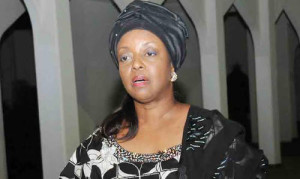•Would it require this stalemate and a near shutdown of the economy to resolve this so-called subsidy conundrum?
It is a veritable sign of a near-failed state that the ‘subsidy’ riddle has been with Nigeria for over two decades. Over this period, the pricing of petroleum products, especially petrol, diesel and kerosene has been a subject of unmitigated angst. While the price of diesel is said to have been deregulated and brought under the harness of market forces, the story is different with petrol and kerosene.
But to put the matter into perspective, Nigeria is among the world’s top crude oil producers with production peaking at about 2.5 million barrels per day (mbp) these past few years. But unlike most other producers, she has been unable to develop this prized asset over the years. In fact, she has merely operated at basic level in which she collects rent from international oil companies that have remained the major producers of Nigeria’s crude oil.
Most of Nigeria’s refining and petrochemical facilities were built in the 1960s and 1980s and they have become obsolete and mainly in disuse. Successive governments have not deemed it fit to upgrade these assets or build modern ones as many of her oil producing peers have done. Nigeria has therefore been exporting a chunk of her crude and importing most of her petroleum products needs.
It has become a vicious cycle that has subsisted for decades and has now come to a head. First, the great kerosene rip-off has gone on in the past four years. According to a Senate committee report, the Nigerian National Petroleum Corporation (NNPC) spent N634 billion on kerosene subsidy between 2010 and 2012. Much more than this figure must have been doled out since then. But the painful irony is that kerosene, used primarily by poor to medium income consumers is not subsidised at retail outlets.
It has been indeed double jeopardy for the populace as the kerosene ‘subsidy’ cabal made up of the petroleum ministry, the NNPC and the marketers ferret billions of naira from the treasury in the guise of ‘subsidy’ and ‘make’ even more billions of naira from the people by selling at market rate. This racket, which started in 2010, has gone on all through the tenure of President Goodluck Jonathan. Yet this scam was not stopped, no question has been asked and no one brought to book. Such is the nature of government run in this last four years.
With the ongoing energy crisis in the country, everything may have come to a head now. Since the crash in crude oil prices late last year and the attendant sharp drop in the naira to dollar exchange rate, Nigeria’s economy has been on a top spin. Today, the country has not enough funds to support importation of the quantum of refined petroleum products needed for domestic consumption. Scarcity of products has manifested in the past few weeks as marketers insist government owes them over N200 billion back-log of subsidy payments.
Pump price has increased by more than 50 per cent and there seems to be no end in sight as marketers would not budge unless all outstanding bills are paid. While the populace is in for a long stretch of anguish and economic inertia, not much may be done by the out-going government until the May 29 handover to a new government.
The in-coming Muhammadu Buhari administration will have to act fast and decisively before things get grimmer. The new government would have to come up with a masterplan to deal with the situation. And this it must sell convincingly to Nigerians. Given the antecedents of the president-elect, he is likely to get the people’s support even if they are to make initial sacrifices before things get better.
What is to be done? First the petroleum ministry and the NNPC need to be cleaned out quickly. It is currently infested with deep-rooted corruption. Second, NNPC must take over the importation of products and simultaneously commence an expedited programme of repairing old refineries and building new ones. The new government must focus on harnessing Nigeria’s strategic asset, not frittering it.
‘What is to be done? First the petroleum ministry and the NNPC need to be cleaned out quickly. It is currently infested with deep-rooted corruption. Second, NNPC must take over the importation of products and simultaneously commence an expedited programme of repairing old refineries and building new ones’



A nice piece of advice. Gmb has to hit the ground running, so much needs to be done, Nigeria is in coma